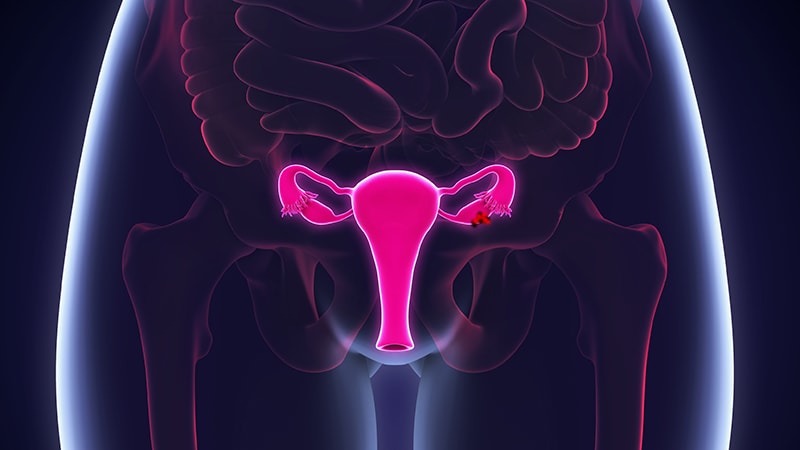Advancements in Ovarian Cancer Treatment Revealed
Core Concepts
Advancements in ovarian cancer treatment show significant progress in progression-free survival.
Abstract
The content discusses the results of the DUO-O trial, focusing on the addition of the PARP inhibitor olaparib and immunotherapy with durvalumab to standard care for advanced ovarian cancer. Key points include:
Improvement in progression-free survival (PFS) with the novel combination therapy.
Significant benefits observed in patients with homologous recombination deficiency (HRD).
Financial toxicity and access issues for patients in different regions.
Study details, patient criteria, and treatment regimens.
Safety and tolerability of the treatment regimens.
Insights from experts on the study results and underserved patient populations.
'Huge Step Forward' in Advanced Ovarian Cancer
Stats
The addition of durvalumab and olaparib was associated with a 37% improvement of PFS compared with standard care.
HRD-positive patients in arm 3 had a significantly longer PFS than those in arm 1, with a hazard ratio of 0.49 (P < .0001).
Serious adverse events were reported in 34%, 43%, and 39% of patients in arms 1, 2, and 3, respectively.
Quotes
"The benefit seen with the novel combination therapy is both statistically significant and clinically meaningful." - Carol Aghajanian
"The results represent a huge step forward." - Merry Jennifer Markham
"For the first time, we have a positive study in this patient population." - Christina Fotopoulou
Key Insights Distilled From
by Liam Davenpo... at www.medscape.com 06-03-2023
https://www.medscape.com/viewarticle/992740
Deeper Inquiries
What are the potential implications of financial toxicity on patient access to novel ovarian cancer treatments?
Financial toxicity can have significant implications on patient access to novel ovarian cancer treatments. In the context of the DUO-O trial, where the combination of olaparib and durvalumab showed promising results in advanced ovarian cancer, the cost of these treatments can be a barrier for some patients. Patients who are underinsured or face high co-pays may struggle to afford these novel therapies, impacting their ability to receive potentially life-saving treatment. This financial burden can lead to delays in treatment initiation, interruptions in therapy, or even the inability to access the treatment altogether. It underscores the importance of ensuring that patients have access to financial assistance programs and support mechanisms to alleviate the financial strain associated with these advanced treatments.
How might the study results impact the future development of treatment regimens for advanced ovarian cancer?
The results of the DUO-O trial, demonstrating a significant improvement in progression-free survival (PFS) with the combination of olaparib and durvalumab in advanced ovarian cancer, have the potential to influence the future development of treatment regimens for this disease. The study's findings suggest that combining PARP inhibitors with immunotherapy could be a promising approach in the first-line treatment of advanced ovarian cancer, particularly in patients without a BRCA mutation. This opens up new possibilities for tailored treatment strategies that target specific molecular pathways and biomarkers in ovarian cancer. The success of this combination therapy may pave the way for further research into novel treatment combinations and personalized medicine approaches in the management of advanced ovarian cancer.
What role does genetic testing play in improving outcomes for patients with ovarian cancer?
Genetic testing plays a crucial role in improving outcomes for patients with ovarian cancer by guiding treatment decisions and identifying potential therapeutic targets. In the context of the DUO-O trial, genetic testing for BRCA mutations and homologous recombination deficiency (HRD) status helped stratify patients and determine their eligibility for the novel combination therapy. Patients with HRD-positive tumors showed a greater benefit from the combination of olaparib and durvalumab, highlighting the importance of genetic testing in identifying subgroups of patients who are likely to respond to specific treatments. By identifying genetic mutations and alterations associated with ovarian cancer, genetic testing enables oncologists to personalize treatment plans, select targeted therapies, and improve patient outcomes. It also plays a role in ongoing research efforts to develop more effective and tailored treatment regimens for ovarian cancer patients.
0
More on Healthcare
